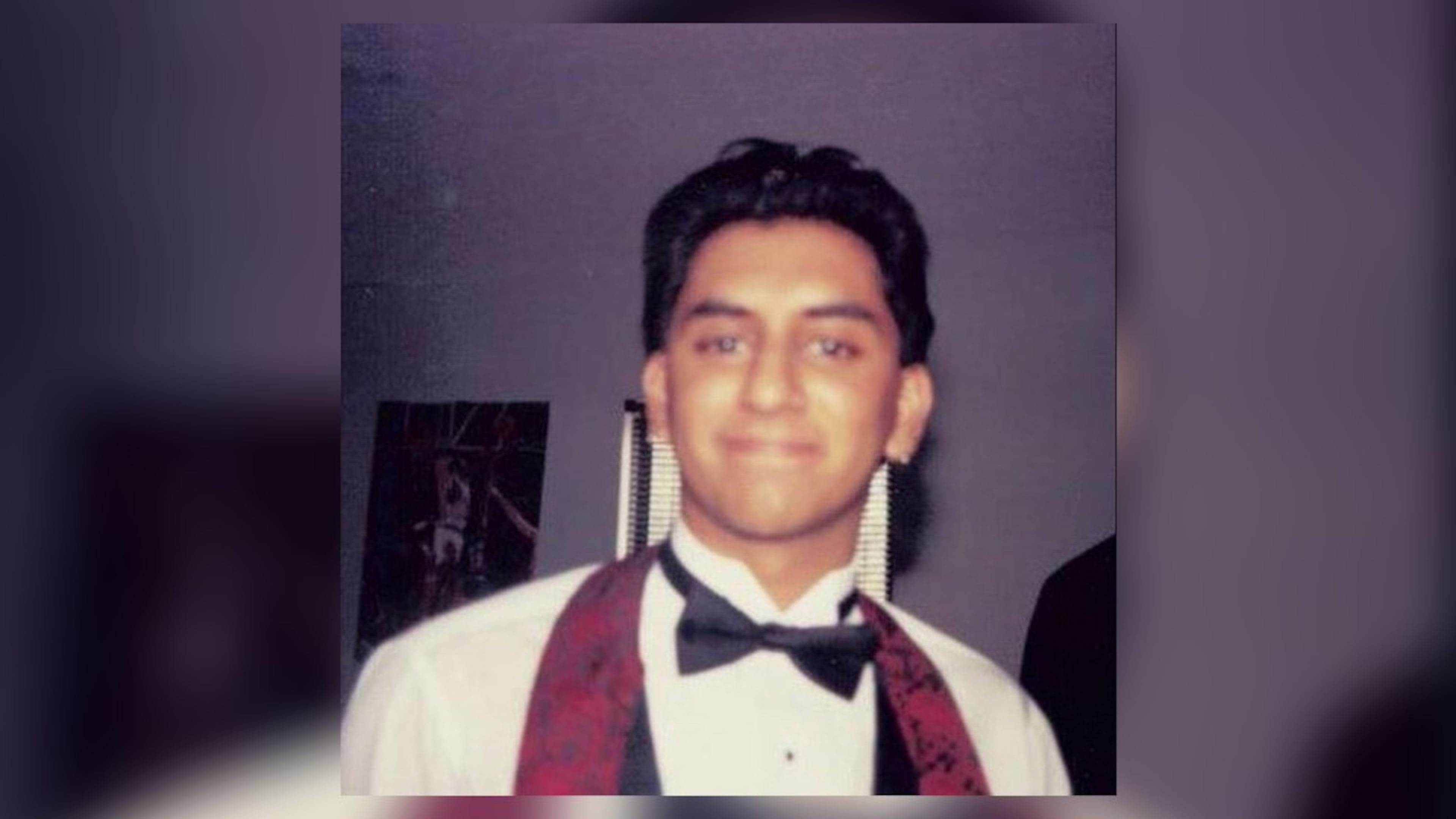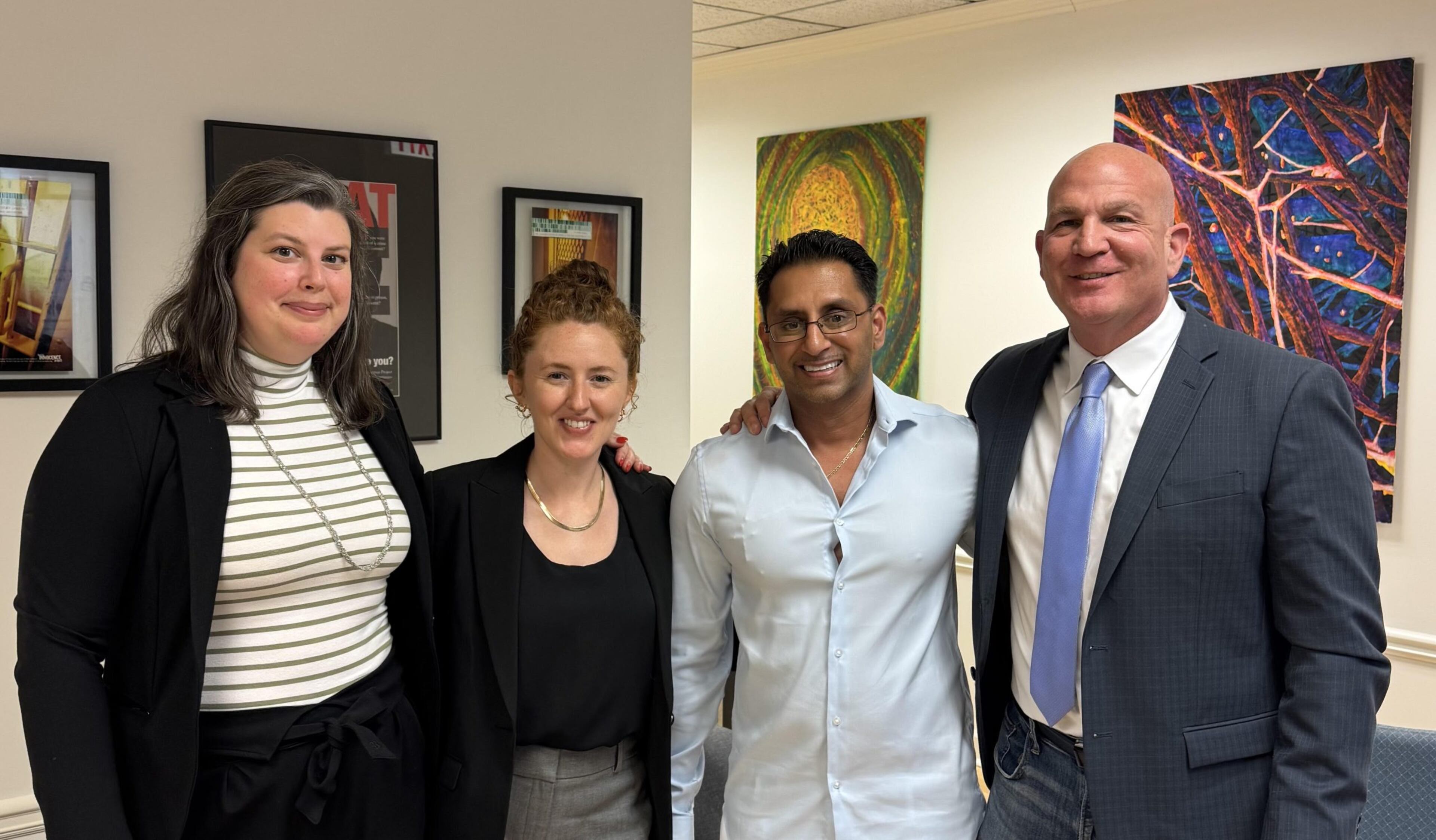‘This should have never happened’: Georgia exoneree celebrates 1 year of freedom

Sonny Bharadia is making up for lost time.
After spending nearly 23 years behind bars for a crime he didn’t commit, the 51-year-old celebrated his one-year “freedom anniversary” this month.
The Gwinnett County man spent much of the last year road-tripping across the country — exploring new cities, reconnecting with loved ones and enjoying things he feared he would never get to experience.
He’s also engaged to be married.
“I feel like I went from the valley to the mountaintop,” said Bharadia, who was 27 when he got locked up for a Savannah-area home invasion and sexual assault he had nothing to do with.

Bharadia maintained his innocence from the beginning, but his joined the estimated 4% of all criminal cases in Georgia that result in a wrongful conviction, according to data from the Georgia Innocence Project.
“This should have never happened,” said Bharadia, who witnesses said was 250 miles away in DeKalb County during the November 2001 home invasion. “But I’m grateful it’s over with.”
He is suing the town of Thunderbolt, the Savannah suburb where the crime occurred, along with the former small-town police chief and the detective he says helped railroad him.
His legal team also plans to petition the state for compensation under a recent law that allows Georgia’s exonerees to seek money for their lost time.
Chatham County prosecutors offered Bharadia a deal ahead of his 2003 trial: plead guilty and get 10 years in prison. He said he rejected the offer because it would have required him to register as a sex offender and admit to something he didn’t do.
As he sat in Georgia prisons all those years, he sometimes wondered whether that was the right decision — especially after his father died in 2015 while he was still locked up.
“Even my dad, when this happened, was like, ‘Son, tell the truth. You’re innocent,’” Bharadia said. “And I did.”
His case went twice to the Georgia Supreme Court, which ultimately declined to overturn his conviction. After some technology upgrades over the years, DNA evidence pointed to another man — a man whose testimony helped send Sonny to prison for life without the possibility of parole.
Bharadia, who was released from prison last November, said he leaned heavily on his faith to get him through the tough times, along with a team of attorneys he said never gave up on him.
Olivia Vigiletti, an attorney who worked on Bharadia’s behalf at the Georgia Innocence Project, described her client’s ordeal as appalling.
She said incentivizing witness testimony in criminal trials is dangerous and unfair because it can lead to wrongful convictions.
“It’s horrendous. It shouldn’t be allowed,” she said. “You have all these incentives to lie on other people.”
Vigiletti, who now teaches at the Michigan Innocence Clinic at the University of Michigan, hosted Bharadia and his fiancée, Zara, over the weekend and celebrated his year of freedom.
Bharadia said he plans to do more traveling, some public speaking and maybe even finish the book he’s been working on. He also hopes to tie the knot with Zara, whom he met in January at an Atlanta-area grocery store.
Kristin Verrill, executive director of the Georgia Innocence Project, said wrongful convictions are far more common than most people realize.
She said courts often “favor finality over fairness,” which is part of the reason Bharadia’s exoneration took so long, even in the face of DNA evidence that she says should have cleared him over a decade ago.
“We’re grateful the district attorney decided not to retry the case,” Verrill said. “But we wish it hadn’t taken that long.”
Bharadia said he’s finally in a position to “chase dreams.”
In April, he took a road trip to Seattle and attended a conference there. It gave him a chance to see much of the country.
And while he still encounters some challenges stemming from his time in prison, he said life is much better on the outside.
“Things have changed, yeah, but you know what? I’ve changed, also,” he said. “I can’t get the years back, so I don’t focus on what I lost, but I just try to live each day as best as I can. ... That’s how I move forward.”



